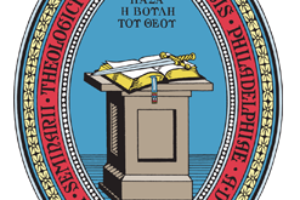Sound hermeneutics requires an understanding of how communication works. The Bible, after all, is God’s authoritative communication to us. There are three components of communication: words, genre, and message. “Words” refers to what we say; “genre” to the way we say it; and “message” to the reason for saying it.[1] When we decide to communicate, we first determine the point we want to make (message), then the way we want to say it (genre), and finally we express ourselves in words.
Of these three, genre is the most neglected by preachers. Genre is an essential clue to understanding the message of biblical texts, because it clues us in to the reading strategy—i.e., the hermeneutical principles—that the biblical author expects us to use. We practice genre analysis every day. We’ve all mastered the reading strategies of dozens of genres, including tax bills, political cartoons, parodies, fairy tales, editorials, and street signs. We don’t think we’re engaging in genre analysis, because these genres are common in our culture.
Words alone cannot communicate a message. Genre is necessary to make sense of words. Take the phrase “I am bad.” We’re familiar with the wording, but what is the message? If intended ironically, the message is, “I think I’m cool.” If it’s a mocking insult, the message is, “The person I’m speaking about thinks he’s cool, but he’s not.” If it’s a heartfelt confession, the message is, “I believe that I am a bad person.”
In some genres, the words are similar to the message. In others, they are quite different. Let’s say we want others to believe that our kids are great. If we want to be crystal clear but dry, we could use a declarative sentence. If we want to “wow” our listeners, we could use an anecdote. If we want to rouse the emotions, we could write a poem. Notice that even when the message is the same, the genre we couch it in affects our word choice:
Genre: Declarative Sentence
Words: My kids are great.
Message: Believe my kids are great.
Genre: Anecdote
Words: I woke up, got coffee, heard laughs outside, and saw my kids washing my car.
Message: Believe my kids are great.
Genre: Poem
Words: Roses are red, violets are blue, my kids’ hearts are true.
Message: Believe my kids are great.
The same dynamics are present in biblical communication. In some genres, the words are similar to the message; in others they are very different.
Genre: Direct command (Ephesians 5:18a)
Words: Do not get drunk on wine.
Message: Do not get drunk on wine.
Genre: Parable (Matthew 13:44)
Words: The kingdom of heaven is like treasure hidden in a field. When found, the
finder hides it, sells everything, and buys the field.
Message: Join the kingdom of heaven, it is more valuable than anything else.
Genre: Lament (Psalm 10)
Words: God, why do you hide? The wicked are prospering. God, fix the problem.
God is great.
Message: When feeling like God is hiding in the midst of an unjust trial, God’s people
can (express their feelings to God,) call on God to fix the problem and,
when they do, do it while maintaining full confidence that God is great.
Genre: OT Narrative (Genesis 11:1–9)
Words: After the flood, people don’t disperse, endangering and defying God’s
redemptive plans, so God disperses them.
Message: It is futile to defy God’s redemptive plans, because God’s redemptive plans
will prevail.
To give an example from recent history, a few years ago The Da Vinci Code caused quite a stir, because many read it more like a work of history than like the novel that it is. This was largely a result of the author employing a literary device in its opening pages to heighten interest in the story. The gullible public, unfamiliar with fiction’s tools of the trade and unversed in historical Jesus studies, misread the book in droves, and made its author a very rich man. If misreading genre clues in secular literature can have deleterious effects, how much more when biblical literature is preached?
[1]William W. Klein, Craig Blomberg, and Robert L. Hubbard, Introduction to Biblical Interpretation, rev. ed. (Dallas, TX: Word, 2004), 169.





Leave a Reply
Your email is safe with us.